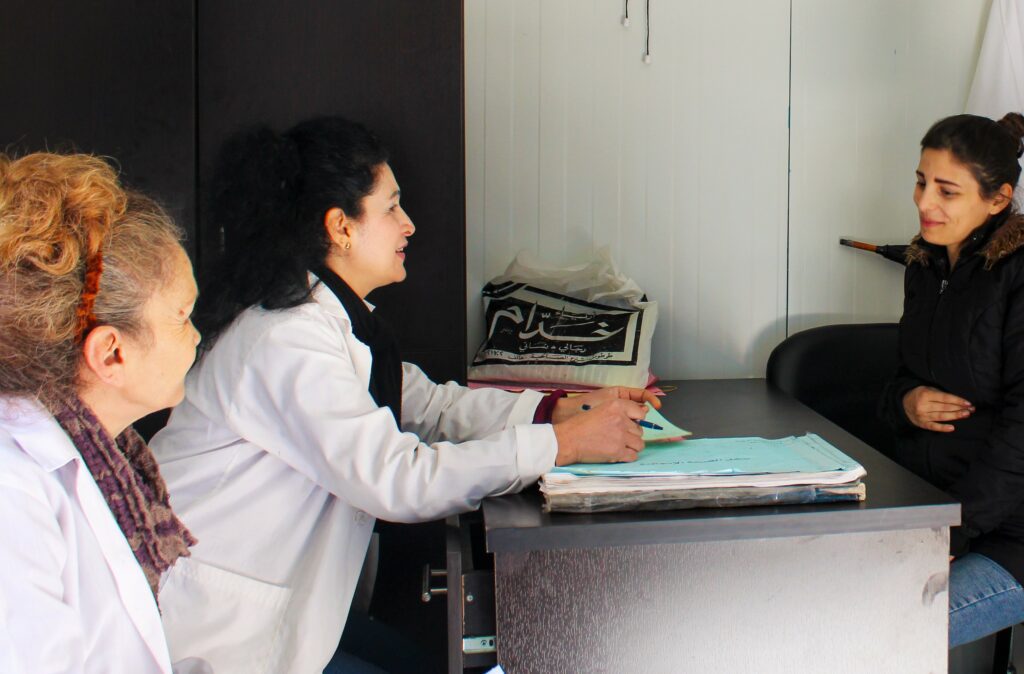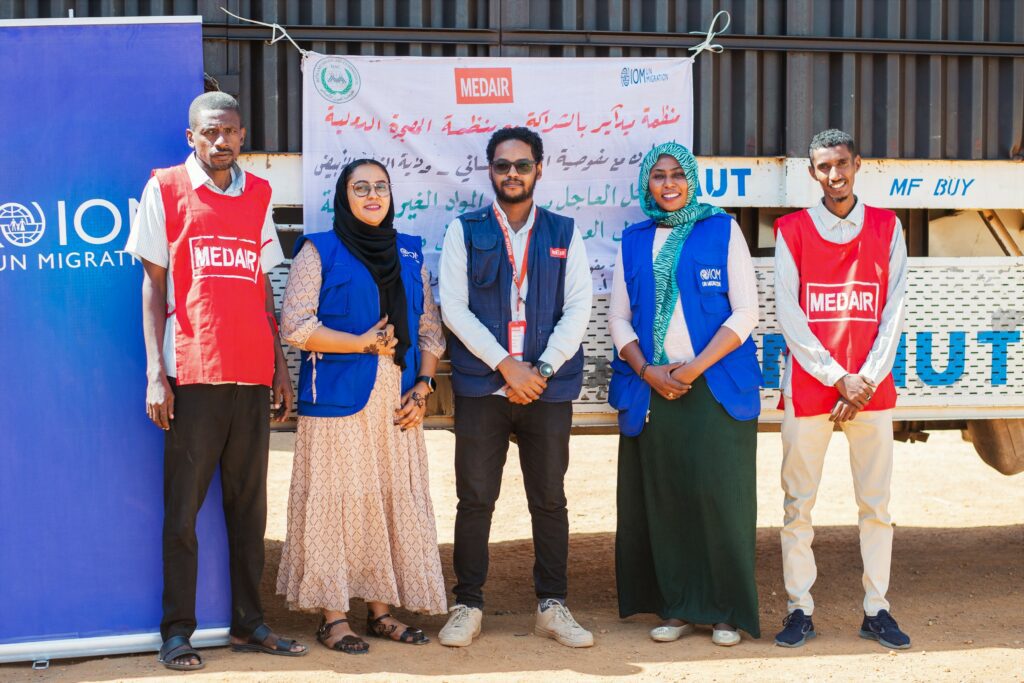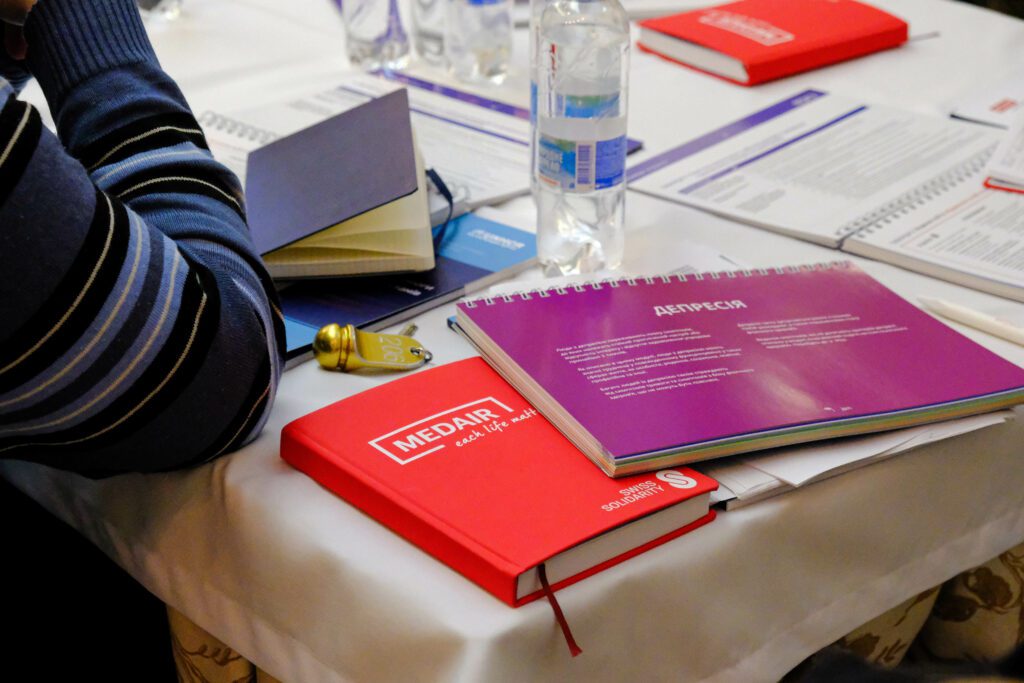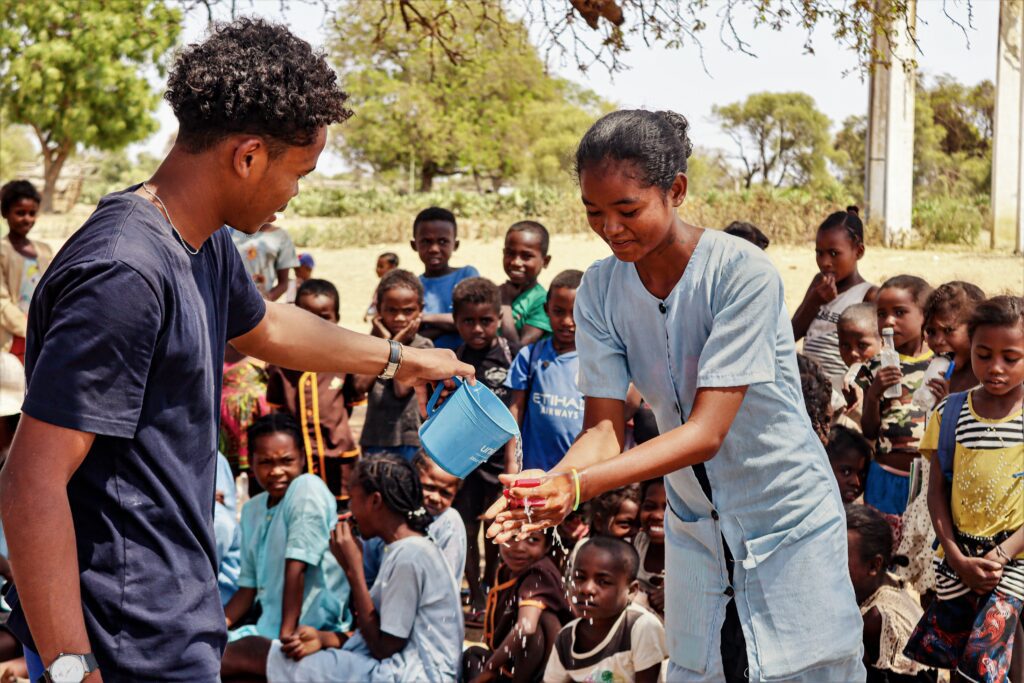Refugees fleeing the conflict in Ukraine have left their entire lives behind, often with just the clothes on their backs. They go somewhere new to start all over again. Just like us, they seek a life of dignity, freedom, and security. Due to the conflict in Ukraine, millions of people fled their homes. Residents continue searching destroyed buildings for family members, pets, and belongings, while others leave loved ones behind. Families are being separated, chasing safety, and trying to find a new home. Take a moment and ask yourself the following questions; Where would you go for help? Where would you stay? How would you provide for your family? Finding a new home in a new country that is not your own is challenging, especially when it is involuntary. It is particularly hard for families caring for loved ones with serious illnesses. According to the UNCHR, 22% of the refugees travel with at least one person with special needs – most often with a person with a disability (11%) or with a serious medical condition (7%). 15% travel with at least one elderly person – and they more often declare the need for medical or material support.
“Unfortunately, while traveling to Poland, my father’s condition worsened. He was starting to feel quite ill, and we didn’t know what it was. Not long after, he was diagnosed with cancer.”
In Poland, I joined Alina and Svitlana, Medair’s Protection caseworkers on a field trip in Rzeszów, Poland. Elina and Svetlana were conducting a household visit with Marina, a 38-year-old refugee from Ukraine. Marina fled the conflict with both her parents, her two daughters, and their two cats.
Alina and Svitlana have been consulting with Marina and her family. It has been a couple of weeks since their last consultation, but they always follow up on their needs through a phone call. Marina and her family of seven live in a shared home, taking up two bedrooms. She shares one room with her two daughters. Meanwhile, her parents share the other room. The house they live in is shared with seven other families, including some Ukrainian students that occasionally rent rooms for long-term stays. On the day of the visit, there was a cold front in Poland as we made our way. The landlord greeted us at the door as we followed Marina up the stairs into one of the bedrooms. When Marina opened the door, her father, Alexander, was sleeping with his back towards the door, and her mom, Alvitina, was sitting by his bedside, plating a bread and cheese sandwich and some warm tea. The bedroom was small and barely fit two beds and a closet. The family warmly welcomed us. I quickly realized, however, that it was cold in the room as dim lighting made its way in.
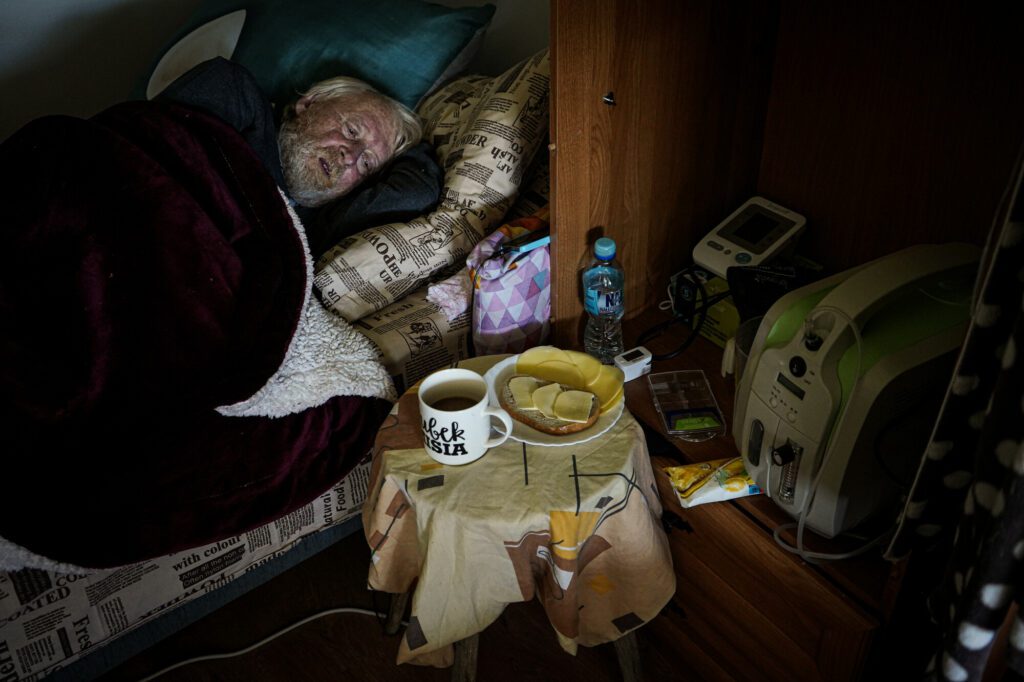
Alexander, 68-year-old, a Ukrainian community member with cancer resting on his bed in their one-bedroom in Olbrachta, Rzeszów on the 9th of November 2022. ©Medair/Abdul Dennaoui
Marina, 38 years old, and her family escaped the conflict in Ukraine in March 2022, coming to Poland on an arduous journey. “Before the conflict started in February, my husband had the feeling that something bad was coming. Based on the news we were hearing; we were already discussing fleeing the country. I knew I had to leave my husband and my brother behind. It still makes me very sad that I am here without them. We call them about five times a day to check up on them. Sometimes more, depending on when the conflicts intensify. Our home wasn’t safe for us anymore. My mother was having difficulty coming to grips with the fact that we will be leaving my brother, and my father was ill at the time, so we had no choice but to chase safety. I feel like I have abandoned them and everything I’ve ever known, including my sanity. But my kids are the single most important thing to me in life. They have their whole future ahead of them, so we decided to leave before the conflict started. We didn’t feel safe to leave right away, so we waited until it was” says Marina, with downcast eyes.
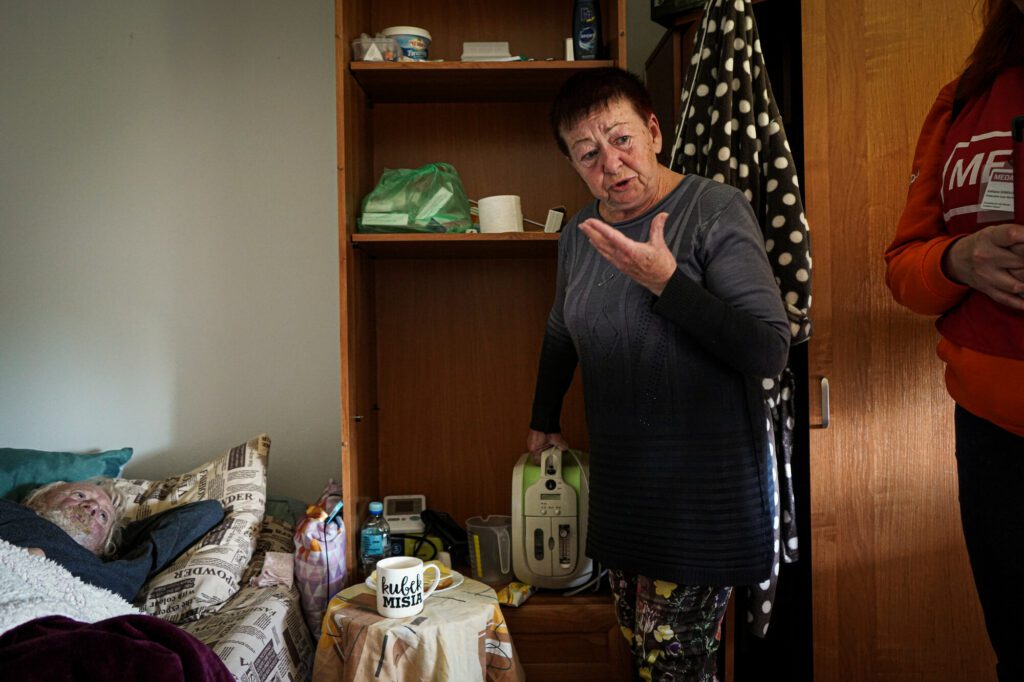
Alvitina, 68-year-old, a refugee from Ukraine holds the oxygen tank she brought over when she and her family fled the conflict in Ukraine in March of 2022, while her husband Alexander, 68-year-old sleeps on the bed in Olbrachta, Rzeszów, Poland on the 9th of November 2022. ©Medair/Abdul Dennaoui
Mid-conversation, Marina’s daughter Karolina energetically bursts into the room. Alvitina continued, “At the beginning of March, our town in Dnipro was first hit, with airstrikes that were extremely close to home. We waited for the right time, and we departed. We only brought essential things like my husband’s oxygen tank, some clothing, medications, and most importantly, our cats. My husband refused to leave without the cats” she said, giggling while holding Karolina’s hand.
Marina continued, “We left shortly after the strikes. We contacted some relatives on our way to Poland. They were able to help find a hostel willing to host us for little money. We eventually found one. With little savings, we could only afford to stay for ten days. By the 22nd of March, we had found this home here, which we currently share with seven other families. The landlord was helpful. He was helping refugees coming from Ukraine into Poland. As part of the Polish government initiative, he allowed us to stay here for four months rent-free. He was nice enough to have extended our stay for a few additional months. We will move somewhere new again, but we don’t know where yet.”
Marina and her family were getting accustomed to life here, as another challenge had befallen the family. While traveling to Poland, my father’s condition worsened. He was starting to feel quite ill, and we did not know what it was. Shortly after, he was diagnosed with cancer. He required immediate assistance. We could not make it happen. We were refugees, so we had limited access to health care. We did not know what to do or where to go. Also, the health system setup is different here, so it took us a while to find a hospital where we could register him for a proper check-up and assistance. Eventually, we found one. He was put on a waiting list by one of the hospitals nearby. For five months, we waited. It felt like forever. His condition continued to worsen. We could do nothing more than wait. At this point, his health had worsened further. My father was not able to walk anymore” she says sadly.
“We continue to struggle to afford all his medications, but we are grateful that there is a roof above our head. We are facing some financial issues with some strenuous conditions for staying here rent-free. We refrain from using electricity, as it is expensive and unaffordable. For example, my mother and I can only do laundry once a month. We bring together our laundry and choose a day as necessary. The other downside is that we cannot afford to turn the heaters on in the room. We refrain from using them in the rooms” she says with a worried face, aware that soon the weather will start to get colder.
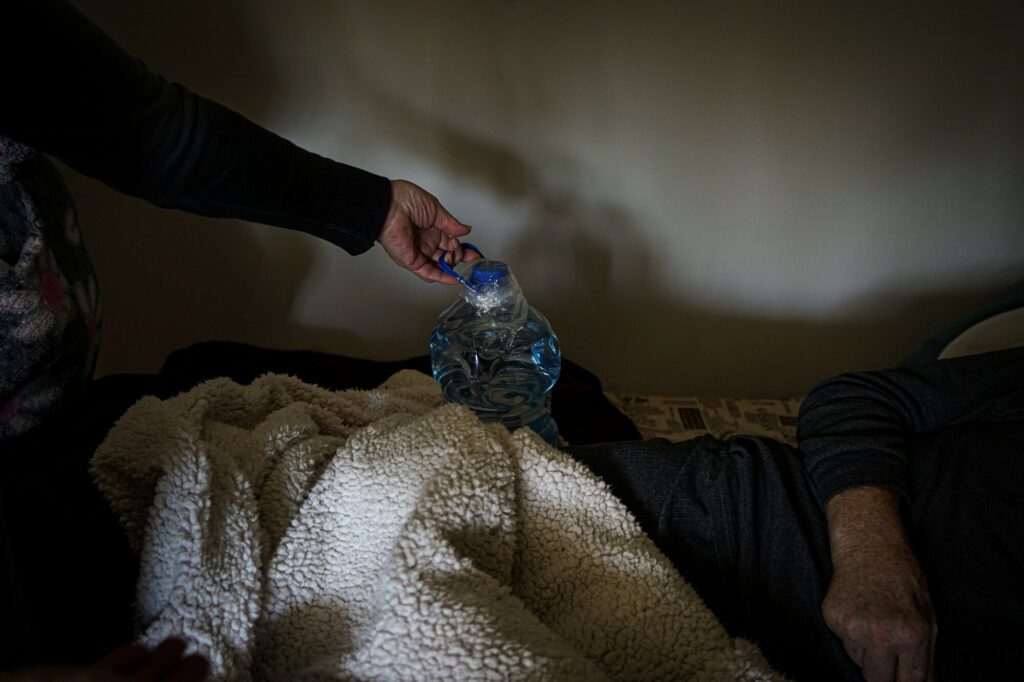
Alvitina, 68-year-old, a refugee from Ukraine showing a bottle containing hot water which she places underneath the bedsheets next to her husband, Alexander, 68 years-old back to keep him warm, as they do not have access to heaters in a room after fleeing the conflict in March 2022, Rzeszów, Poland on the 9th of November 2022. ©Medair/Abdul Dennaoui
Her mother quickly interrupted, “We always place a warm water bottle behind Alexander’s back. I sleep on a separate bed across from him. The nights get extremely cold. Sometimes I can see him shiver, but he does not say anything. Since we cannot use the heaters in the bedroom, this bottle is the only solution to keep him warm in his bed at night. Every day, I fill a bottle of warm water and place it under the sheets behind his back. I tape the top shut to avoid any leakage on the bed where he sleeps. It is our reality now” she says helplessly.
Alvitina showed us some current photos of her city in Ukraine and the destruction that followed the conflict. Marina and her mother remain worried about the loved ones they’ve left behind. Despite the struggles the family is facing, Karolina seems to be the life of the party keeping everyone positive. As we concluded our stay, Marinas’ family was very thankful for the support they received from Medair.
In Poland, as part of Medair’s response, Protection Case Workers were hired and trained in Psychological First Aid (PFA), Protection from Sexual Exploitation and Abuse (PSEA), and referral pathways. Medair supports Marina and her family through Multi-Purpose Cash Assistance and our Case Workers who help link them to local services and further protection activities that link households with Polish government support mechanisms. This dramatically increases the protection environment in situations that can often be chaotic, with people who have experienced trauma and conflict. For Alexander, Medair provided a wheelchair for mobility and to improve the quality of his life, reducing dependency on his caregivers. Marina was referred to free Polish classes to improve her verbal communication skills, with the hopes of learning Polish to raise opportunities for job offers by actively seeking them out.
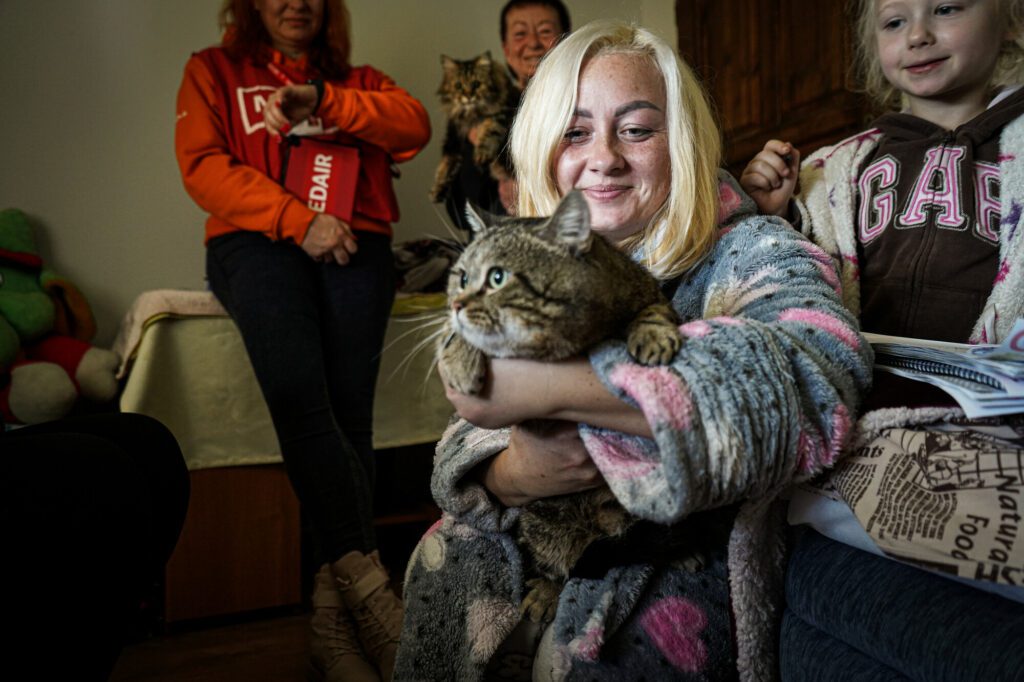
Marina, 37 years old holds her other cat while their bedroom in Olbrachta, Rzeszów on the 9th of November 2022. @Medair/Abdul Dennaoui
Medair services in Przemyśl and Rzeszów are funded by Tearfund New Zealand and Chaine du Bonheur (Swiss Solidarity, CdB).
This content was produced with resources gathered by Medair field and headquarters staff. The views expressed herein are those solely of Medair and should not be taken, in any way, to reflect the official opinion of any other organization.


